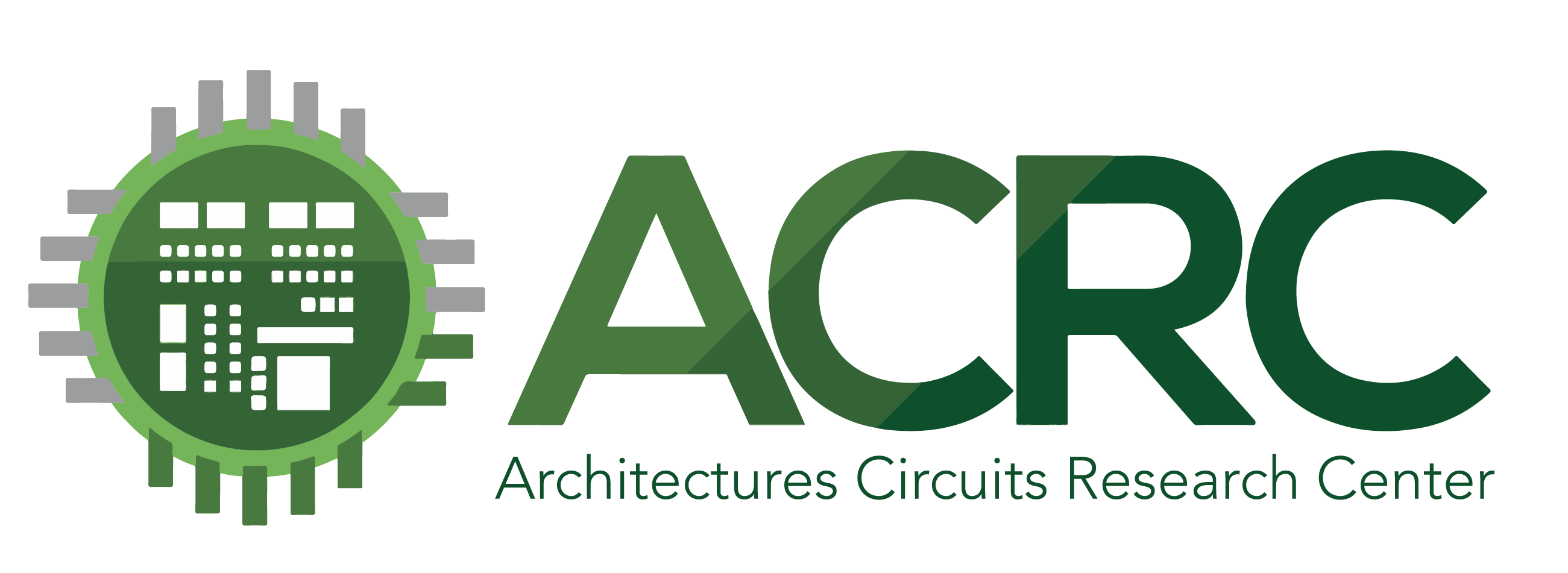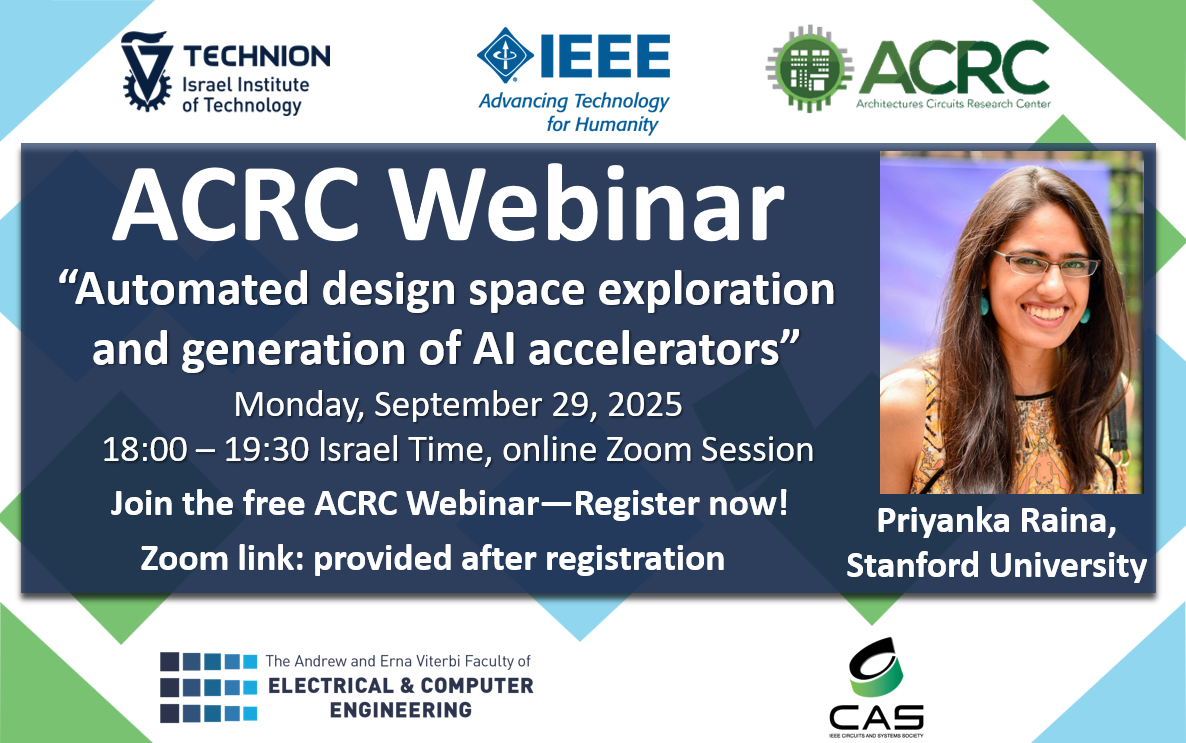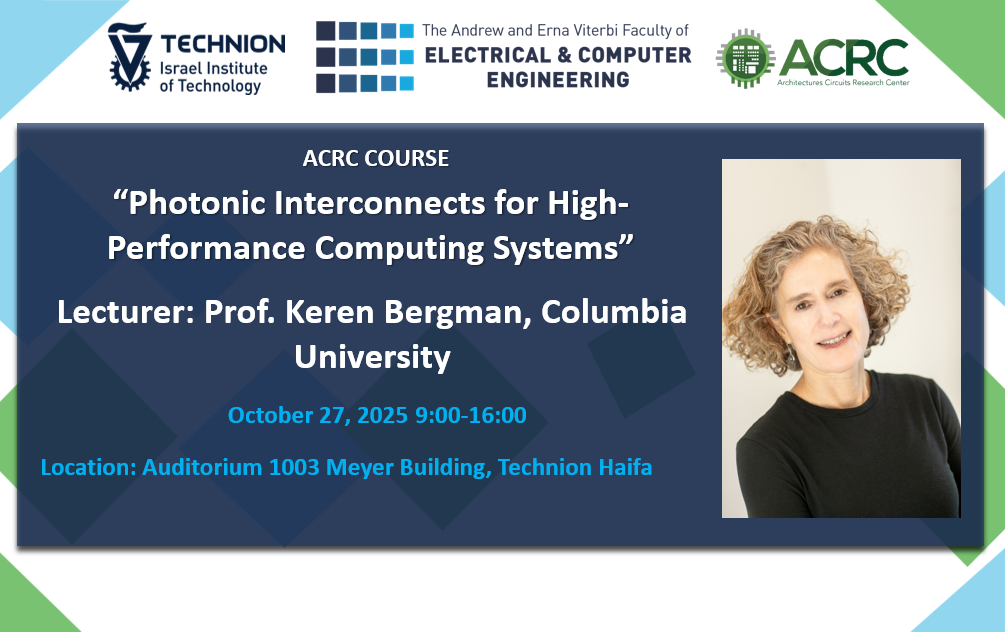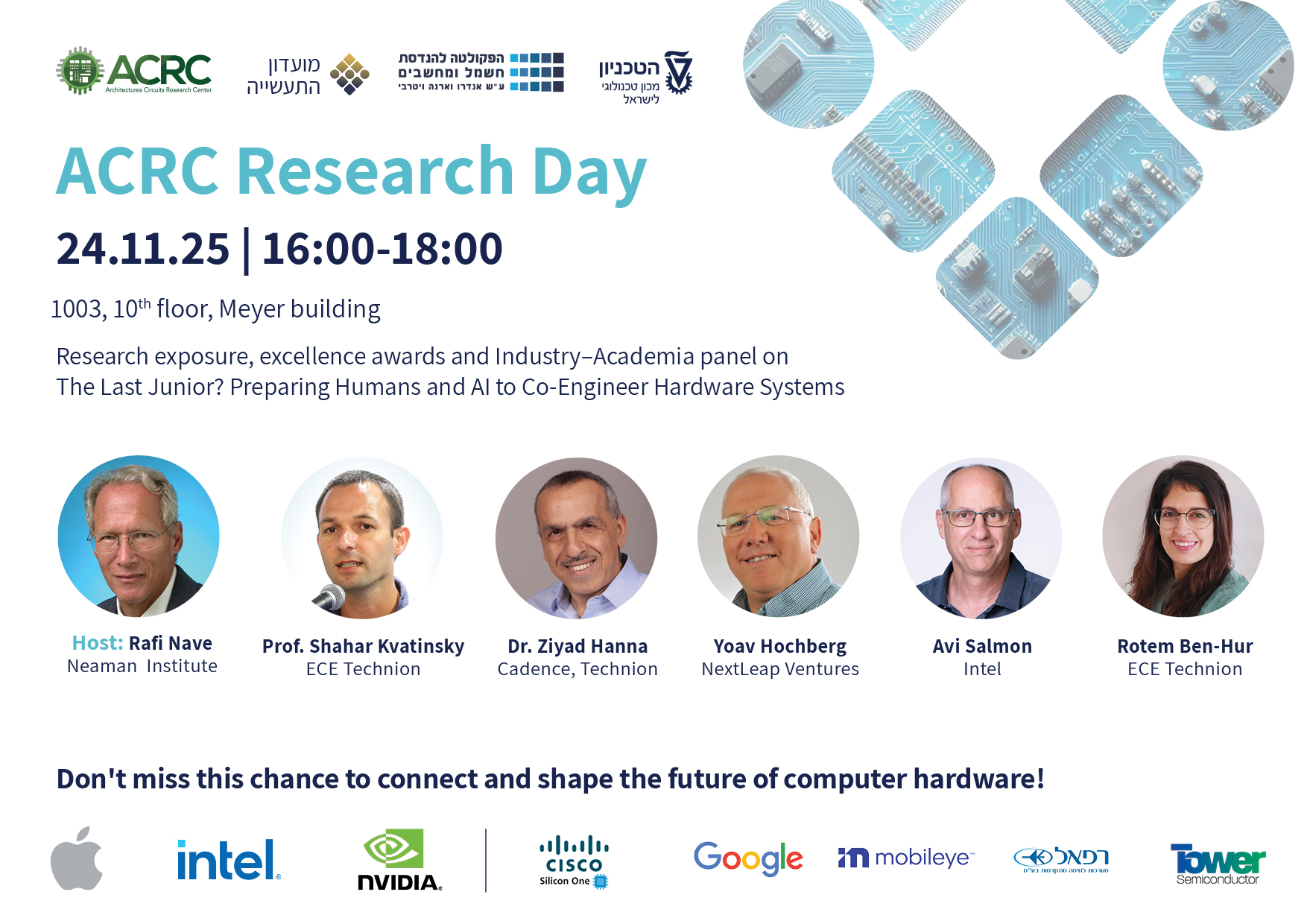Speaker: Prof. Ilia Polian, University of Stuttgart
Date: November 10th, 2025, Monday
Time: 13:30 – 14:30 Israel Time
Location: Room 608 Zisapel Building (New), Technion
Language: English
Abstract:
Memristive technologies offer fascinating opportunities for unconventional computing architectures and emerging applications. With their combined compute and storage capability, memristive devices enable in-memory architectures that overcome the von-Neumann bottleneck, neuromorphic computing, and a range of security application. Memristive circuits are particularly attractive for cryptographic computations, where secret keys can be stored in the devices without any external memory interfacing, and stateful computations facilitate secure use of nonces (numbers used once).
This talk, based on a longstanding collaboration between the presenter and Dr. Nan Du of Leibnitz IPHT Jena, will focus on the novel mixed-mode (MM) memristive computing, where the same device performs a mixture stateful resistance-controlled and non-stateful voltage-control operations. It will discuss automated synthesis of MM synthesis, showing an optimal approach for small functions based on Boolean satisfiability and a more scalable procedure that utilizes majority-inverter graphs. The MM paradigm leads to 3-5 times more compact realizations of user-defined functions than conventional memristive computing.
A second focus of the talk will be on the vulnerability of memristive cryptographic circuits to physical attacks. We explore in-depth the side-channel analysis through the power channel and show the new mPEM (memristive power estimation model) that is effective in attacking unprotected memristive circuits, both in simulation and using actual measured data of small fabricated circuits based on experimental BiFeO3 devices. We show that the advantages of memristive devices, such as their nonvolatility and the memory effect, can dialectically become their disadvantages and lead to new side-channels that did not exist in conventional CMOS technology. Based on these observations, we discuss countermeasures against side-channel attacks: hiding based on power equalization, and masking based on randomized computations. We study conditions under which solutions known from CMOS continue to be effective in the memristive domain and where new approaches are necessary.
Bio:
Ilia Polian is a Full Professor and the Director of the Institute for Computer Architecture and Computer Engineering at the University of Stuttgart, Germany. He received his Diplom (MSc) and PhD degrees from the University of Freiburg, Germany, in 1999 and 2003, respectively. Prof. Polian co-authored over 250 scientific publications and received two Best Paper Awards. He is a Senior Member of IEEE. Prof. Polian is the Speaker of DFG’s Priority Program 2253 “Nano Security”, a Director of the Graduate School “Intelligent Methods for Test and Reliability” in Stuttgart (funded by Advantest) and of the Center for Integrated Quantum Science and Technology (IQST). His scientific interests include hardware-oriented security, emerging architectures, test methods, and quantum computing.





